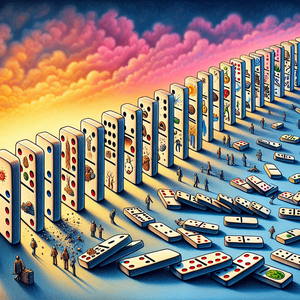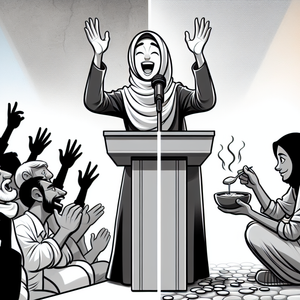The Psychology Behind Fortnite Item Shop Purchases

One of the most significant psychological drivers behind purchases in the Fortnite Item Shop is the pervasive fear of missing out, commonly referred to as FOMO. This phenomenon is particularly pronounced in gaming, where limited-time offers can create an urgent sense of necessity. Players are often presented with exclusive skins that are only available for a short stint, compelling them to make impulsive decisions. For example, the introduction of the "Galaxy Skin" in Fortnite was a game-changer. Initially, this exclusive skin was only obtainable through the purchase of a Samsung Galaxy device. The rarity and limited availability fueled a frenzy among players, creating a secondary market where the skin was highly coveted. This situation underscores how FOMO can dictate consumer behavior, prompting players to act quickly and often without thorough consideration of the purchase.
Social Status and Identity
Purchasing items in Fortnite is not solely about aesthetics; it is also a means of social expression and identity construction. Players often invest in skins to showcase their status within the gaming community. Unique or rare skins can enhance a player's perceived social standing, leading to a sense of belonging and recognition among peers. For instance, the "Renegade Raider," one of the original skins in Fortnite, has become a symbol of prestige within the game. Only players who participated early in the game's lifecycle have access to this skin, making it a coveted item that signifies experience and loyalty. This illustrates how cosmetic purchases can serve as social currency, allowing players to project their identity and status within the community. The desire to be recognized and respected can drive players to spend real money on virtual items, reinforcing their social connections and enhancing their enjoyment of the game.
The Impact of Limited-Time Offers
The concept of scarcity is another powerful psychological tactic used in the Fortnite Item Shop. Limited-time offers create a sense of urgency that encourages players to make quick purchasing decisions. When players see a countdown timer next to an item, the pressure to act immediately can lead to impulse buys, often overshadowing rational decision-making. Epic Games effectively utilizes this strategy by frequently rotating items and introducing seasonal themes. During special events like Halloween or Christmas, the shop features themed skins and items that are only available for a short period. This seasonal scarcity not only drives sales but also fosters excitement and engagement among players, tapping into their desire to own exclusive items that align with current trends. Such tactics capitalize on the psychological principle of scarcity, where items perceived as rare or limited become more desirable, often leading to increased sales.
The psychological factors that influence purchases in the Fortnite Item Shop are multifaceted and deeply ingrained in the gaming experience. FOMO, social status, and the impact of limited-time offers are just a few of the elements that drive players to invest in cosmetic items. By understanding these psychological dynamics, we can gain a greater appreciation for the complex interplay between consumer behavior and digital gaming culture. As Fortnite continues to evolve, so too will the strategies employed by Epic Games to captivate and compel its audience, ensuring that the Item Shop remains a focal point of engagement in the gaming world. The implications of these findings extend beyond Fortnite, shedding light on the broader landscape of digital commerce and the ways in which psychological principles can be leveraged to influence consumer behavior in various online marketplaces.
User Experience (UX) Researcher in Gaming
Epic Games, Riot Games, Activision Blizzard, Electronic Arts
Core Responsibilities
Conduct qualitative and quantitative research to understand player behavior and preferences within gaming environments.
Analyze user feedback and behavior data to inform game design and monetization strategies, focusing on psychological factors like FOMO and social identity.
Required Skills
Proficiency in research methodologies, including surveys, interviews, and usability testing.
Familiarity with statistical analysis software (e.g., SPSS, R) and user testing tools (e.g., UserTesting, Lookback).
Strong communication skills to present findings to cross-functional teams.
Game Monetization Strategist
Supercell, Ubisoft, Tencent, Zynga
Core Responsibilities
Develop and implement monetization strategies that leverage psychological principles to enhance player spending, such as scarcity and social status.
Analyze market trends and player behavior to optimize in-game purchases and pricing models.
Required Skills
Strong analytical skills with experience in data analysis tools (e.g., Excel, Tableau).
Understanding of consumer psychology and digital marketing strategies.
Ability to work collaboratively with game designers and marketing teams to create compelling offers.
Community Manager for Online Games
Bungie, Valve, Riot Games, Square Enix
Core Responsibilities
Engage with the player community through social media, forums, and in-game events, fostering a sense of belonging and brand loyalty.
Monitor community feedback regarding game updates and item shop offerings, addressing concerns and promoting new releases effectively.
Required Skills
Excellent written and verbal communication skills, along with a strong understanding of gaming culture and community dynamics.
Experience with community management tools (e.g., Discord, Reddit) and social media platforms.
Knowledge of conflict resolution and community engagement tactics.
Behavioral Economist in Gaming Industry
Epic Games, PlayStation Studios, Blizzard Entertainment
Core Responsibilities
Research and analyze economic models related to player spending habits and the impact of psychological triggers on purchasing decisions.
Collaborate with game developers to implement findings into game design and monetization strategies, focusing on creating value propositions that resonate with players.
Required Skills
Advanced degree in economics, psychology, or a related field with a focus on behavioral economics.
Strong analytical skills and familiarity with econometric modeling techniques.
Ability to translate complex economic concepts into actionable strategies for game development.
Psychologist Specializing in Gaming Behavior
Gaming studios, research institutions, universities, think tanks focused on digital economy
Core Responsibilities
Conduct studies on the psychological effects of gaming, particularly regarding consumer behavior and the impact of game design on player engagement and satisfaction.
Provide insights and recommendations to game development teams based on psychological research to enhance player experience and spending.
Required Skills
Doctorate in psychology, with a focus on behavioral psychology or consumer psychology.
Experience conducting research and publishing findings in relevant academic or industry journals.
Strong presentation and communication skills for conveying complex ideas to non-specialists.


